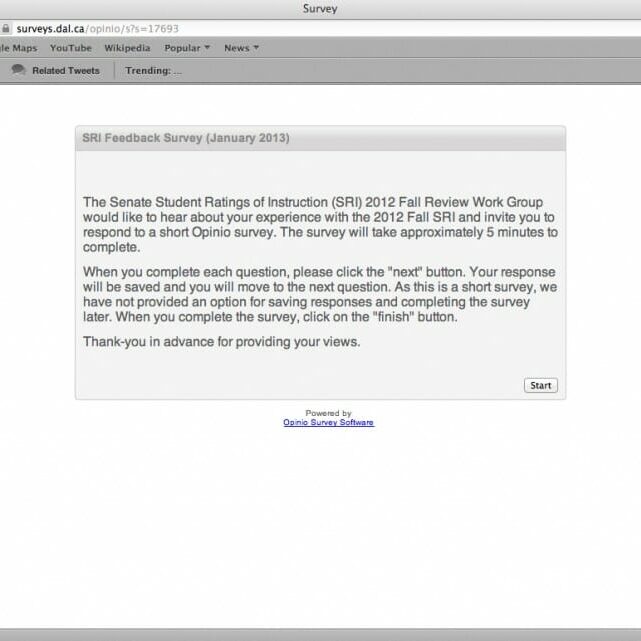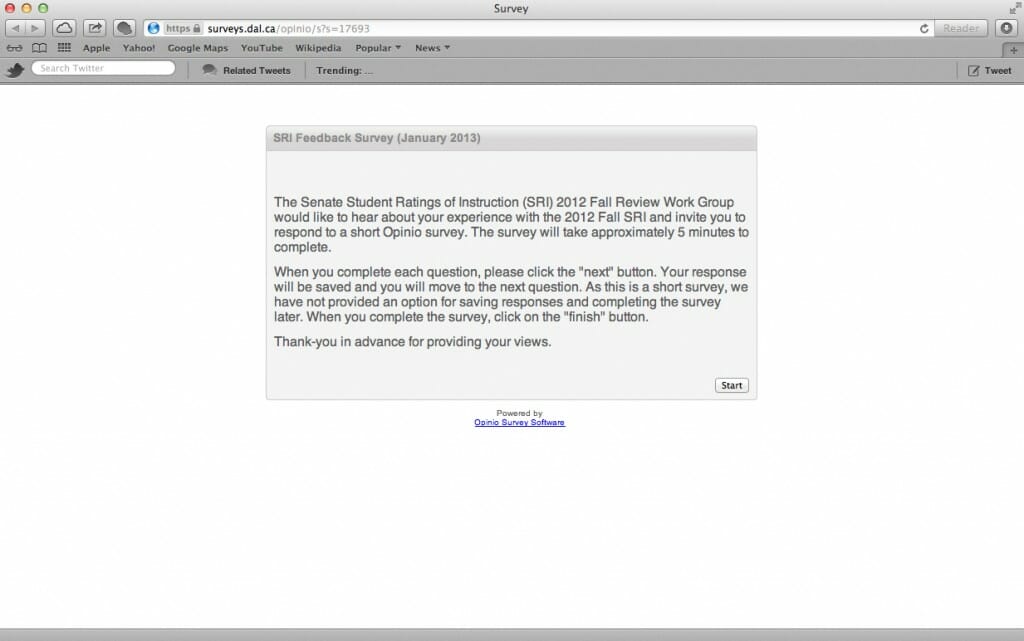
A review committee has been set up to look at the problems the online Student Ratings of Instruction (SRI) system faced last term and to ease the process in the future.
But Deborah Kiceniuk, the associate director of institutional initiatives, says Dal didn’t suffer as heavy of a drop in responses as other universities making the transition.
“There doesn’t seem to be a significant difference,” says Kiceniuk.
When McGill University was first investigating the prospect of online evaluations in 2003, it was found that “the response rate was lower in many cases, but not all.”
Tyler Publicover, a second-year journalism student at University of King’s College, didn’t complete his online SRI last term.
“I didn’t complete it because I was too behind on stuff,” says Publicover. “And because I was lazy.”.
“I also didn’t do it because it was online,” he says. “It was easier to ignore.”
During the fall 2012-2013 term, the BLUE system, used to record student evaluations, saw a 52 per cent response rate. The OPINIO system, used as backup for the BLUE system, saw a 59 per cent response rate. Averaged together, the response rate for the university last fall was just over 56 per cent.
Since the average response percentage with the paper system was 60.5 per cent, the number didn’t plummet into the dark abyss of student apathy like many expected.
Still, Kiceniuk suggests that students who don’t complete the SRI are missing out.
“Students loose a voice,” she says. “They lose the ability to improve courses.”
Student responses are used for a variety of purposes, including teacher awards, applications for tenure, and course improvements.
“[The ratings] are used by departments as well as instructors,” says Kiceniuk.
In addition, if too few students complete the surveys, the class information won’t be relayed to the professor. Kiceniuk says that if five out of 20 students in a class dont respond, the information from the rest of the class’ responses can’t be used.
Last term, some students attempting to access the SRI system ran into problems.
“Students weren’t able to locate emails, and were deleting them,” says Kiceniuk.
Also of concern were the holes left by the transition.
“The information that BLUE system needs has to be comprehensive and inclusive. The paper system was inclusive, but the online system needed information that wasn’t provided,” says Kiceniuk. Information from cross-listed courses, or courses that belonged to more than one department, was not included in the online system.
Kiceniuk claims that, although the online system is an ongoing “developmental process,” the potential horror stories surrounding it’s implementation were proved false.
“It didn’t happen here,” she says.







